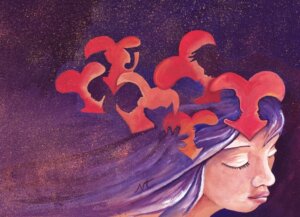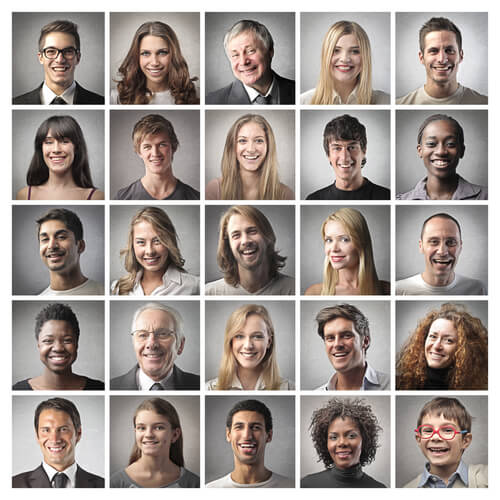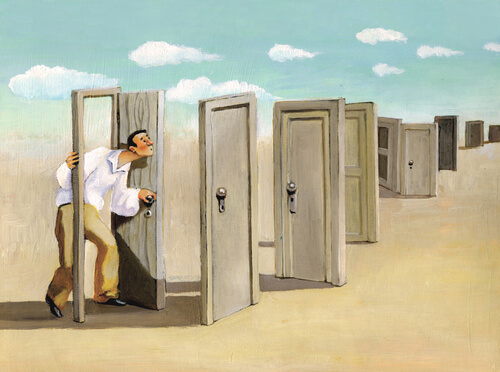Tinder and Love: When More is Less

Dating websites are nothing new. There are dozens of them and, depending on what your ultimate aim is, you’re able to choose the one that best suits you. For instance, some people are just looking for sex, while others are looking for a life partner. The Tinder thing is something unique though. It’s a dating app that’s become all the rage for its specific approach to dating.
Tinder works like a game. To play, you just have to fill in your profile and the app looks for people who live close by and who are compatible with you and your interests. It also allows you to choose people anonymously and facilitates contact with those you want to meet via chat. Therefore, the options of meeting someone suitable multiply.
Nevertheless, there are inevitably questions that arise regarding the use of Tinder. Some of them might be: Is there really any benefit of having so many people to chose from? What can you expect from someone who “plays” at dating? How do you choose amidst so many options?
Freedom of choice makes us more dissatisfied
Having a large number of options makes it difficult to choose. Consequently, when it comes to choosing a partner, having the chance of weighing up so many people, and having access to so many dates only fuels frustration.

Applications like Tinder open the door for people to have an easier time meeting others. However, having so much freedom of choice doesn’t make you freer or happier. As a matter of fact, as you experience and play the system it makes you more dissatisfied.
This is because people tend to enter into this dating game rather overenthusiastically, going from one person to another, just to test them out. It’s so easy to do. In fact, simply accumulating dates becomes the goal for many users. This is a world away from finding a regular partner.
The paradox of choice
According to the psychologist, Barry Schwartz, the freedom of choice that forms a central principle of Western societies doesn’t make us freer. In fact, choosing has tended to paralyze us. Furthermore, it hasn’t made us happier, but more dissatisfied. Barry Schwartz calls this the paradox of choice.
According to his theory, abundance damages free choice. In 2004, he published his book, The Paradox of Choice: Why More Is Less. In this work, he argues that eliminating the choices offered to consumers can greatly reduce anxiety for shoppers.
This same argument can be applied to dating when considering the way that Tinder operates. In effect, in this game, users are mere products to be tested by others. Inevitably, having the facility to try a lot invites people to try a lot.
Why do we suffer from having to choose
Schwartz integrates various psychological models of happiness that show how the problem of choice can be approached through different strategies. The important thing is that each of these strategies comes with its own set of psychological complications.
Choice and happiness
Schwartz discusses the importance of common research methods that use a happiness scale. In this sense, he shares the ideas of David Myers and Robert Lane. These two psychologists both independently claim that the current abundance of choice often leads to depression and produces feelings of loneliness.
Schwartz draws particular attention to the price industrialized society is paying for increased wealth and freedom. In fact, he points to the fact that this results in a substantial decline in quality of life and personal relationships.

Second-order decisions
Cass Sunstein uses the term second-order decisions for decisions that follow a rule. He claims that having the discipline to live “by the rules” eliminates countless troublesome options in everyday life.
Barry Schwartz suggests that these second-order decisions can be divided into general categories of efficacy for different situations: assumptions, standards, and cultural codes. Each method is a useful way for people to analyze the wide range of options they find themselves faced with.
Missed opportunities
Schwartz claims that, when people are faced with choosing one option from many desirable options, they begin to consider hypothetical trade-offs. In fact, they evaluate their options in terms of missed opportunities rather than the potential of the opportunity itself.
Schwartz further argues that one of the disadvantages of making tradeoffs is that it alters the way we feel about the decisions we face. In addition, it also affects the level of satisfaction we experience with our decision.
While psychologists have known for years about the harmful effects of negative emotion on decision making, Schwartz notes that recent evidence shows how positive emotion has the opposite effect. What he means is that, in general, people are inclined to consider more possibilities when they feel happy.
People aren’t market products
Finding a partner or creating friendships isn’t the same as going to the market to buy apples. In the market, you walk through the stalls, see the apples that are there, and ask yourself which one you want. Obviously, you want the best ones, but they all look really good.
However, would you ask each stallholder to give you one of their apples to taste so you could choose which one you like best? Leaving aside the fact that they probably wouldn’t give them to you for free (even less so if they see you tasting other apples at all the stalls), what do you think would happen? On the other hand, would you like other people to think of you like an apple that they need to try, along with numerous others, to see which one they like best?
If you’re looking for a partner or new friends, start thinking with respect, both toward others and yourself.
Dating websites are nothing new. There are dozens of them and, depending on what your ultimate aim is, you’re able to choose the one that best suits you. For instance, some people are just looking for sex, while others are looking for a life partner. The Tinder thing is something unique though. It’s a dating app that’s become all the rage for its specific approach to dating.
Tinder works like a game. To play, you just have to fill in your profile and the app looks for people who live close by and who are compatible with you and your interests. It also allows you to choose people anonymously and facilitates contact with those you want to meet via chat. Therefore, the options of meeting someone suitable multiply.
Nevertheless, there are inevitably questions that arise regarding the use of Tinder. Some of them might be: Is there really any benefit of having so many people to chose from? What can you expect from someone who “plays” at dating? How do you choose amidst so many options?
Freedom of choice makes us more dissatisfied
Having a large number of options makes it difficult to choose. Consequently, when it comes to choosing a partner, having the chance of weighing up so many people, and having access to so many dates only fuels frustration.

Applications like Tinder open the door for people to have an easier time meeting others. However, having so much freedom of choice doesn’t make you freer or happier. As a matter of fact, as you experience and play the system it makes you more dissatisfied.
This is because people tend to enter into this dating game rather overenthusiastically, going from one person to another, just to test them out. It’s so easy to do. In fact, simply accumulating dates becomes the goal for many users. This is a world away from finding a regular partner.
The paradox of choice
According to the psychologist, Barry Schwartz, the freedom of choice that forms a central principle of Western societies doesn’t make us freer. In fact, choosing has tended to paralyze us. Furthermore, it hasn’t made us happier, but more dissatisfied. Barry Schwartz calls this the paradox of choice.
According to his theory, abundance damages free choice. In 2004, he published his book, The Paradox of Choice: Why More Is Less. In this work, he argues that eliminating the choices offered to consumers can greatly reduce anxiety for shoppers.
This same argument can be applied to dating when considering the way that Tinder operates. In effect, in this game, users are mere products to be tested by others. Inevitably, having the facility to try a lot invites people to try a lot.
Why do we suffer from having to choose
Schwartz integrates various psychological models of happiness that show how the problem of choice can be approached through different strategies. The important thing is that each of these strategies comes with its own set of psychological complications.
Choice and happiness
Schwartz discusses the importance of common research methods that use a happiness scale. In this sense, he shares the ideas of David Myers and Robert Lane. These two psychologists both independently claim that the current abundance of choice often leads to depression and produces feelings of loneliness.
Schwartz draws particular attention to the price industrialized society is paying for increased wealth and freedom. In fact, he points to the fact that this results in a substantial decline in quality of life and personal relationships.

Second-order decisions
Cass Sunstein uses the term second-order decisions for decisions that follow a rule. He claims that having the discipline to live “by the rules” eliminates countless troublesome options in everyday life.
Barry Schwartz suggests that these second-order decisions can be divided into general categories of efficacy for different situations: assumptions, standards, and cultural codes. Each method is a useful way for people to analyze the wide range of options they find themselves faced with.
Missed opportunities
Schwartz claims that, when people are faced with choosing one option from many desirable options, they begin to consider hypothetical trade-offs. In fact, they evaluate their options in terms of missed opportunities rather than the potential of the opportunity itself.
Schwartz further argues that one of the disadvantages of making tradeoffs is that it alters the way we feel about the decisions we face. In addition, it also affects the level of satisfaction we experience with our decision.
While psychologists have known for years about the harmful effects of negative emotion on decision making, Schwartz notes that recent evidence shows how positive emotion has the opposite effect. What he means is that, in general, people are inclined to consider more possibilities when they feel happy.
People aren’t market products
Finding a partner or creating friendships isn’t the same as going to the market to buy apples. In the market, you walk through the stalls, see the apples that are there, and ask yourself which one you want. Obviously, you want the best ones, but they all look really good.
However, would you ask each stallholder to give you one of their apples to taste so you could choose which one you like best? Leaving aside the fact that they probably wouldn’t give them to you for free (even less so if they see you tasting other apples at all the stalls), what do you think would happen? On the other hand, would you like other people to think of you like an apple that they need to try, along with numerous others, to see which one they like best?
If you’re looking for a partner or new friends, start thinking with respect, both toward others and yourself.
This text is provided for informational purposes only and does not replace consultation with a professional. If in doubt, consult your specialist.







